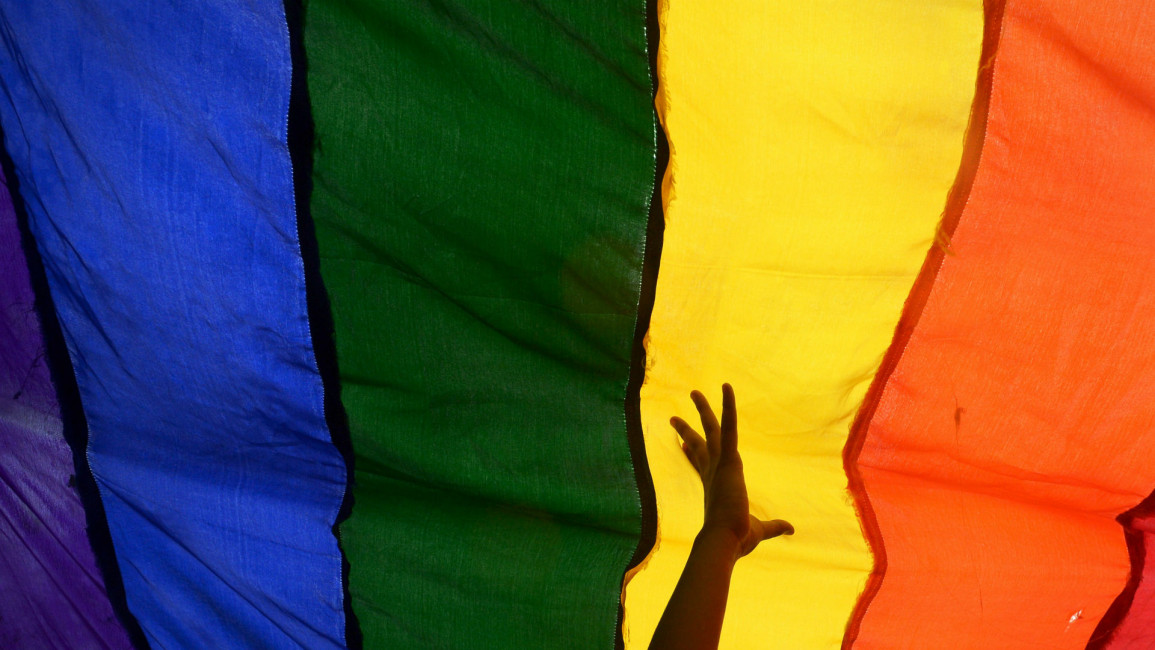Iraqi activists warn lives at risk as parliament seeks to ban homosexuality
The Iraqi parliament seeks to pass a law banning homosexuality in the country, a step deemed by activists that will allow "those who attack LGBT+ citizens to legally get away with their crimes".
"There is an agreement inside the Council of Representatives [parliament] to collect signatures after the current legislative vacation to pass a law for banning homosexuality in Iraq," Aref al-Hamami, an MP from the State of Law Coalition led by former Iraqi Prime Minister Nouri al-Maliki and member in the parliament's legal committee told the state-run Iraqi News Agency on 8 June.
"Passing such a law would legally ban homosexuality and the other perversions associated with it," he noted.
Although Iraq does not have a specific law on homosexuality, there are binding Iraqi laws that criminalise all types of sexual activity outside "legal marriage".
Thread (1/10)🚨URGENT - SHARE WIDELY
— Amir Ashour أمير عاشور (@amirashour_) July 8, 2022
---------------------------------
The Iraqi parliament is working on passing a law that completely bans #LGBT+ identities, with individuals like @Mu_AlSadr calling for a day dedicated to fighting against #LGBT+ people.https://t.co/On2a71aId2 pic.twitter.com/CV3Ro60dj8
Iraqi activists warn that passing such a law would put the lives of members of the LGBT community in Iraq in severe danger amid increasing efforts by several Iraqi politicians who urge violence against them.
"We try to avoid giving numbers of LGBT+ people in Iraq because there is no data like that and because we believe sexual orientation is a spectrum!" Amir Ashour, head of the IraQueer, told The New Arab via Twitter.
"LGBT+ people are intimidated through verbal and physical violence. They range from attacks on social media to torture, sexual assault, and even killings," he wrote.
"The law will allow the Iraqi government, armed groups, and others who attack LGBT+ citizens to legally get away with their crimes. This law would be against Iraqi and international laws which guarantee equal protection for all citizens regardless of their sexual orientation. Iraq recognised this in 2020 in their submission to the UN!" he added.
Meanwhile, influential Shia cleric Muqtada al-Sadr, whose parliamentary bloc won most seats in the October elections but withdrew en mass last month, claimed in a tweet on 23 May that monkeypox was an "outcome of homosexual behaviour."
"I call on them (homosexuals) to repent. I call for a repeal of laws upholding gay rights to protect humanity from the monkeypox epidemic or what we call homosexual-pox," he wrote.
He also called for a special day to "combat homosexuality and their infamous evil in the earth and the sky."
TNA contacted Mohammed Anuz, head of the legal committee in the Iraqi parliament, but he was not available to comment.
"The government of Iraq has failed to protect LGBT people from systemic violence by armed groups, whose actions have gone unpunished," The Human Rights Watch said last month.
Court lawyers told TNA on the condition of anonymity that there are no Iraqi laws specifically on homosexuality in Iraq that either punish them or give them rights.
However, the lawyers clarified that LGBT+ people in Iraq and the Kurdistan region are often taken to court according to the Iraqi penal code number 8 of 1988 which bans prostitution, as well as article 393 of the Iraqi penal code of 1969 against rape or sodomy.
According to both codes, all types of homosexuality are punishable, even with consent, with imprisonment ranging from seven to 15 years.


![President Pezeshkian has denounced Israel's attacks on Lebanon [Getty]](/sites/default/files/styles/image_684x385/public/2173482924.jpeg?h=a5f2f23a&itok=q3evVtko)



 Follow the Middle East's top stories in English at The New Arab on Google News
Follow the Middle East's top stories in English at The New Arab on Google News


